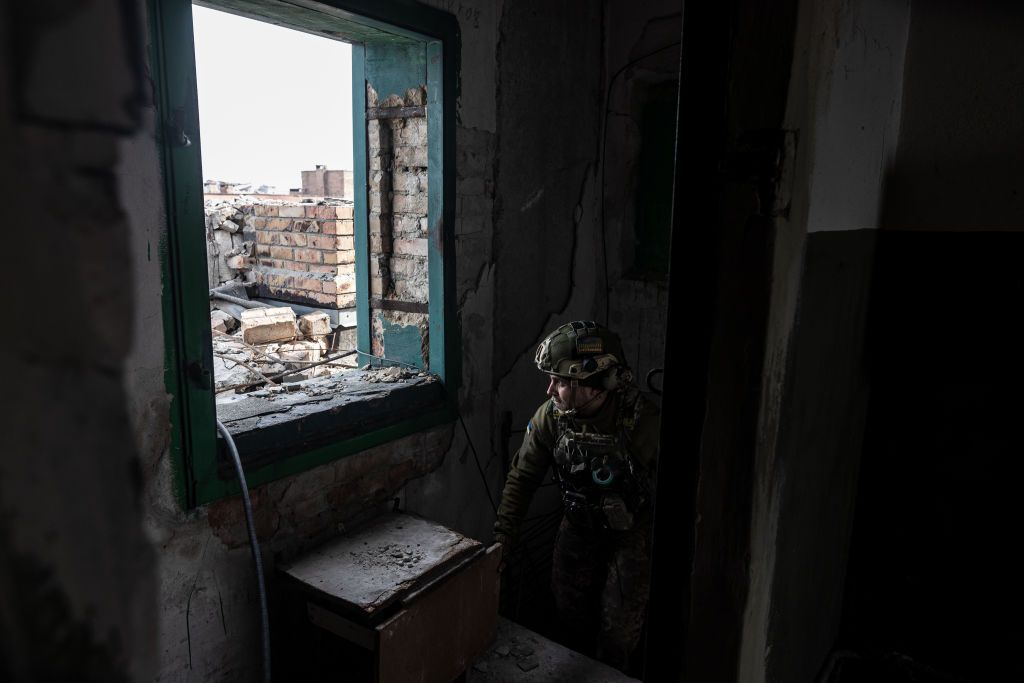Ukraine war latest: Oil depot fire in Sevastopol 'preparation' for counteroffensive, says military spokesperson

Key developments on April 30:
- Ukraine, US' top generals talk of counteroffensive possible scenarios
- Zelensky discusses military needs with Macron
- Fire at oil depot in Sevastopol is 'preparations' for counteroffensive, says military
- Intelligence chief pledges to eliminate Russian war criminals worldwide
According to Ukraine's Armed Forces' Southern Command spokesperson Natalia Humeniuk, the large fire at an oil depot at the Kozacha Bay in Russian-occupied Sevastopol on April 29 is part of Ukraine's "preparations" for the awaited counteroffensive.
"This work is a preparation for the broad, full-scale offensive that everyone expects," Humeniuk said, as cited by Ukrainska Pravda.
Ukraine's leadership and high command haven't confirmed Ukraine's responsibility for the attack deep into Russian-occupied territory.
Videos and photos of a large fire spanning across what appears to be the entire oil depot and a massive black cloud of smoke above the city began circulating on social media early in the morning on April 29.
The head of the illegal Russian occupation administration in Sevastopol soon claimed a drone attack caused a large fire at an oil depot at Kozacha Bay.
"A fuel tank is on fire near Manganari Brothers Street in the Kozacha Bay area. According to preliminary information, the fire was caused by an unmanned aerial vehicle hit," the Russian occupation administration head wrote on Telegram.
The fire was extinguished later that day.
Talking counteroffensive
Commander-in-Chief of Ukraine's Armed Forces Valerii Zaluzhnyi met with NATO's Supreme Allied Commander in Europe, U.S. Army General Christopher Cavoli, to discuss anticipated Ukraine's counteroffensive.
General Zaluzhnyi detailed to General Cavoli the operational situation along the entire 1,000-kilometer front line, according to the report.
"I defined possible scenarios, threats, and requirements for our future actions. We aim to prepare to fulfill the defined tasks to the maximum extent possible," Zaluzhnyi said.
Zaluzhnyi didn't specify the details.
They also discussed the "importance of timely supplies of ammunition and hardware in sufficient quantities," Ukraine's need for air-defense systems and other weapons to deter Russia, as well as Ukrainian troops' training.
President Volodymyr Zelensky also discussed the situation on the front line in a phone call with French President Emmanuel Macron on April 30.
Both agreed on "additional solutions" that would strengthen Ukraine's potential on the battlefield, according to the President's Office.
Preparations for Ukraine's counteroffensive are "coming to an end" as the military trains on Western-provided weapons, Defense Minister Oleksii Reznikov said on April 28.
Ukraine has reportedly received almost all the military supplies promised by NATO countries.
Earlier, Cavoli said he is "very confident" in the success of Ukraine's spring counteroffensive.
Meanwhile, Russia focuses its main offensive efforts on Bakhmut, Avdiivka, and Marinka in Donetsk Oblast, where Ukraine's forces repelled over 20 Russian attacks on April 30, the General Staff said in its evening update.
The military said the epicenter of Russian attacks remains in Bakhmut and Marinka, a small industrial town north of Russian-occupied Donetsk.
Apart from Donetsk Oblast, on April 30, Russian forces attacked Luhansk, Kharkiv, Chernihiv, Sumy, Zaporizhzhia, and Kherson oblasts with missiles and artillery, the military said.
Haunting Russian war criminals
Head of Ukraine's military intelligence, Kyrylo Budanov, said in an interview with PBS published on April 28 that Russian war crimes perpetrators would be haunted worldwide.
"Any perpetrator that committed any war crimes or crimes against humanity in Ukraine or even very egregious crimes, like the group rape or killing of civilians and children, will be found and eliminated in any part of the world," Budanov said.
Ukraine's military intelligence chief did not elaborate on how Ukraine is planning to find all the perpetrators.
Ukraine's Security Service recently intercepted a call where a Russian soldier described in detail how he repeatedly cut the throats of Ukrainian prisoners of war after interrogating them.
Ombudsman Dmytro Lubinets said on April 17 that his office had received "several dozens" of videos showing Russian soldiers allegedly executing Ukrainian POWs.
Executions and tortures of the prisoners of war breach the Geneva Conventions and constitute war crimes.
The Prosecutor General's Office said the agency had been investigating 80,000 Russian war crimes allegedly committed by Russian forces in Ukraine.












